“a beautiful piece of southern fiction”
“a beautiful and touching story”
“a real page turner”
And here, for your reading pleasure, is a free, short excerpt:
Mama said I was born by a stream named Sweetwater. She called me Sassy
the moment she realized I was a girl. Mama said girls should be sassy,
gives them sex appeal. So I was named Sassy, after an attitude, and Sweetwater,
after a stream. The year was 1949, and the place was a dirty, back-road shack in
a dusty, little town in South Carolina. Mama never could remember the name
of the town, but she told me that it might have been Cottageville or maybe
even Ridgeville. Didn’t matter much what it was called, though. I never saw it
again, and as far as I knew, Mama didn’t either.
Some people think a gray, tumultuous sky is an omen of discontent, especially
if one’s entry into this world is shadowed by blustery clouds and thunder’s
emphatic roar. But my mama said that heaven welcomed my birth with great
horns blowing and mighty cymbals clashing and omens sent by mighty seers
bring the blessings of miracles, not the doom of devils.
“Gave you its gray,” she said. “Passed it right on to you.”
I always knew she meant my eyes, gray as the weather on the day I was
born, and sometimes showing up hazel when the sun confronts the gloom and
demands I show some color.
“Gave you its temperament, too, and its mystery, girl. Women need a little
mystery. That’s what turns a man’s head. Beauty has nothing to do with anything
more than that.”
It always sounded like the great god Poseidon was my father the way my
mama tells it. Where else could I have come from? No man had ever come forth
and claimed me as his own. Not that I didn’t wonder who my father was, but
when I asked I always got the same reply.
“You came from the sky, Sassy Sweetwater; clear as the stream I bathed you
in, fierce as the wind that blew away the storm, the one that welcomed you here
with great aplomb, and tender as the aftermath of nature’s roar.”
In other words, I was born an ambiguous bastard by a stream in South
Carolina, and my seventeen-year-old mama was not about to tell me whose
handsome smile had won her over. He was obviously too young or too old
to pay for his mistake. I would find out one day, of course. When you ask as
many questions as I did, the answers come at you, eventually. My birth was a
riddle and I wanted my mama to connect me to some kind of heritage I could
claim as my own, but she only gave me new conundrums to chase down. It
should have been enough; there’s nothing wrong with chasing around after
answers you don’t have, it’s how hard you’re hit with them when they fly back
and knock you down.
Mama had traveled at least twenty miles east in Elvira’s old Chevy to give
birth to me, screaming the whole way, or so I’ve been told. Elvira was Mama’s
nineteen-year-old sister and I guess they’d planned the great cover-up, and
the great escape, together. Out of a family of five girls, Elvira was the sanest,
according to Mama.
Of course, I never knew how they covered up Mama’s pregnancy, but Mama
said her family only had eyes for what they wanted to see and ears for nothing
more than what they wanted to hear. In those days, abortions weren’t anything
you could go to the doctor for and I’m sure, with Mama’s Catholic background,
she would never have entertained that option, even if she could have.
I can’t imagine what she went through when she found out there was a baby
in her belly before she even finished high school. And I sure don’t know what
she would have done without her sister helping her through it. Elvira promised
Mama she’d read every book on birthing babies she could get her hands on and
she assured Mama that she had nothing to fear. Well, Elvira must have been
pretty well versed in birthing ’cause there wasn’t a damn thing wrong with me
that my mama’s milk wouldn’t cure. There wasn’t a damn thing wrong with
Mama, either, except all the things you couldn’t see on the outside, all the hurt
she must have been feeling; and I don’t mean just about having me bursting
open her uterus, but the hurts inside her heart that she never spoke about. But
if you knew my mama, you’d know the hurts were there. Mama had the saddest
eyes, like a wounded dog on the side of the road that you really want so
badly to help, but you can’t offer your services without the risk of being bitten.
Elvira went back home a few days after I was born. Mama and me didn’t go
home for another thirteen years. Home for Elvira was fifteen miles outside of
Charleston, while where me and Mama went was hundreds of miles southwest.
I don’t know how we got there. Mama said we hitched all the way to Louisiana.
She said wasn’t a person on the road that wouldn’t stop for a woman with a
baby in her arms. I never knew why she’d decided to settle in Louisiana until I
found out from Elvira, years later, that Mama had gotten an offer to wait tables
in Baton Rouge from some man who’d passed through Carter’s Crossing and
had taken a fancy to her. I always wondered if he was my father, but my Aunt
Elvira said I’d be more likely kin to King Kong.
Can’t ever figure out why Mama left Baton Rouge and wound up settling
in a place as remote as Glenmora. We didn’t stay in Baton Rouge ’cause Mama’s
boyfriend turned out to be a shithead and it wasn’t long before some other guy
caught her eye just long enough to talk her into following him to Glenmora,
where he was assistant principal at the local high school. Of course, I don’t
remember much about those years, but I can recall an apartment in the back of
a small rooming house where we lived. I can just about capture the features of
the woman who took care of me while Mama was working. Connie was her
name and I guess she owned the place. Her bosom was large, always showing
white freckled skin where the crease was. The memory is good when I think
back on Connie, like the talcum powder she put in my underwear and the funny
little children’s books she read me, taking on a different voice for each character
and scaring me half to death when she spoke like the big bad wolf and kind of
lurched forward like she was going to swallow me whole.
Connie was old in the ways that make being old a good thing, with a round,
kind face and a voice as soft as silk lining. She made me hot cocoa before I went
to sleep every night and tossed a little marshmallow right up on top that melted
so nice in the back of my mouth. She picked me up after school every day too,
’cause Mama worked long hours at the Lobster Pot. Connie drove me over to
the Lobster Pot for my dinner and Mama would try, as best she could, to help
me figure out decimals and multiply fractions in between taking orders. I’d sit
at the counter eating crawfish, not really giving a damn what one third times
one eighth of anything could ever equal, and doubting if I ever would give a
rat’s ass about anything I’d ever have to add, subtract, or multiply.
Mama and the assistant principal wound up breaking up shortly after we
settled in Glenmora and not long after, Mama starting dating Guy Grissom,
her boss at the Lobster Pot. Mama made me call him Uncle Guy for years, but
I never liked him. He smelled feminine, like the cologne Mama wore, and he
was always breathing heavy, like he was about to pass out. You might think
he should have been real heavyset ’cause he was so short of breath all the time,
but he wasn’t at all heavyset. He was tall, though, and big, like those football
players with the phony shoulders. But Uncle Guy’s shoulders were naturally
broad and then he narrowed so much at his waist, he could have worn Mama’s
belts. I always thought he looked funny, sort of like a cartoon character, ’cause
his face was square, but Mama thought he was so handsome he could have been
up there on the big screen kissing blondes.
When Uncle Guy Grissom was around Mama didn’t act the same. She
giggled too much and pretty much said yes to anything I asked her. I knew
she barely heard what I’d said ’cause he was there, making himself at home in
Mama’s bed. I was pretty much ignored, except of course, when Mama remembered
that I was her precious little baby girl; then, all of a sudden, I became
this fascinating child with the cutest dimples Guy Grissom had seen this side
of Lafayette. “Wish I could adopt this child and make her my own,” he’d say.
Of course I knew, even back then, that he was bullshitting me as much as he
was bullshitting Mama. Said he was going to make Mama part owner of the
Lobster Pot and divorce his wife soon as his youngest child was out of diapers,
but of course that never happened.
Guy Grissom paid Connie to take care of me ’cause I saw him give her a
white envelope every Friday. She’d hide all the bills in her top dresser drawer,
all but a dollar that she’d stick inside her brassiere, right down the middle where
the crease was. She’d take me to the park in good weather and buy us ice cream
with that dollar or sometimes she’d keep me down at her apartment listening
to The Jack Benny Show or sometimes we’d watch Dragnet ’cause Connie liked
crime a whole lot. I’d come home late evening only to find Uncle Guy in his
underwear eating Mama’s fried catfish, which might have smelled inviting were
it not for his sweet cologne stinking up our room.
Uncle Guy got sick when I was about ten years old and he died three years
later. We didn’t really see much of him after he was diagnosed with something
Mama couldn’t pronounce. Mama had to stop working at the Lobster Pot, of
course, and it was eventually sold. Mama couldn’t pay her bills anymore, so
I guess Uncle Guy had been paying most of them. Guess he didn’t leave her
anything in his will, though, ’cause if he did, I doubt we’d ever have seen the
dusty back road of Carter’s Crossing or been desperate enough to claim the
McLaughlins as blood relatives.
Right after Uncle Guy died, his wife barged into our apartment and called
Mama wanton and loose, not one half hour after they put Uncle Guy in the
ground. Mama cried and ordered her out, but the next thing I knew we were
packing our bags and I was sitting on a bus and then I was sitting on a train
and then there I was on another damn bus and Mama and I were getting off
somewhere in the middle of nowhere with two suitcases and soon-to-be-sore
feet after walking the two miles from the bus stop to Carter’s Crossing where
Mama told me we had family.
Nothing about a bus is fun. Trains somehow have a romance to them that
buses just can’t claim. I always felt like I could be going anywhere on earth sitting
on a train, all the way across the world, listening to the whistle and catching
speedy glimpses of old towns I’d never step foot in. But buses are too close to
home. The towns all have a sameness to them and the roads are all too long,
the destination too far. You can’t be anywhere on a bus but where you started
from and I don’t care how many miles away you think you’ve gone. I’d grow
up hating buses. Maybe ’cause they’d always remind me of our trip back home
to South Carolina and that pathetic-looking, barren bus stop in the middle
of nowhere. I’ll never forget stepping off that bus wondering how far was far
when nothing stares back at you but road signs that signal you’re hundreds of
miles from anywhere you’ve ever heard of.
Mama turned heads, sad eyes or not. She was tall and her hair was nearly
black, but her eyes were the prettiest shade of blue I’d ever seen. It made me
giggle to see how many men thought the same. I used to watch them eyeing her.
Then I’d bat my eyes like Mama did, but they didn’t pay me any mind — just a
smile or an acknowledgement and sometimes they’d pat my head. But it was
Mama they were after and I knew it, even then. I was the convenient excuse
to get to her. I saw more buttons disappear into white handkerchiefs and had
my cheeks pinched by one too many hairy fingers and all the time they were
showing me magic tricks and pretending to be so fond of children, they were
ogling my mama. It made her smile, the way I’d copy her every move, bat my
eyes and shake my crossed leg while these lovesick men vied for her attention
and downright ignored my girlish flirtations. I always knew Mama wanted to
laugh out loud, but she stopped herself.
“Time enough to turn men’s heads,” she’d say, holding me to her.
I guess she didn’t realize I wasn’t at all interested in turning men’s heads. I
just wanted to be like her and to look like her and act like her. Hell, there wasn’t
a little girl in the world that wouldn’t have wanted the same. But I wasn’t tall
and blue-eyed and wispy-looking like Mama. I was skinny and Mama called
me strawberry head, ’cause my hair was flaming red, like the hot part of the
fire, something I never liked hearing ’cause strawberries gave me hives and fire
made my eyes tear. I didn’t have Mama’s clear white skin either. I was a constant
blush with pimples about as busy on my face as grass growing on the ground
under my feet. Mama smeared me with this stuff called PhisoHex at night, but
for every pimple down, three more had burst forth the next morning.
So be it. Mama said I was going to grow into my good looks; I held fast
to that. Mama said when your eye lashes are light and thick like mine, shading
my “overcast” color eyes, as Mama called them, then men were bound to fall at
my feet. Mama said all men are fools for women, but for drop-dead gorgeous
redheads, men are lame-brained idiots. Mama told me not to count all the
wounded and brokenhearted men I was going to leave in my wake, but to just
be prepared to have that effect on them.
Uncle Guy’s death changed things for us, that was for sure. For one, Mama
insisted we had to go back home and make amends. I never could figure out
what we were amending. For another, returning to South Carolina after Uncle
Guy died, and walking up that road with my mama’s hand in mine, was the
closet we were going to be for a long time. I always blamed the distances that
came upon us due to circumstance or choice, didn’t matter, distance was the
last thing I wanted from Mama. But we were coming back to too many bad
memories, wanting to be enfolded by a family whose arms were too short to
reach us. Walking up the road that day and heading toward Carter’s Crossing,
I knew that everything was changing. I could feel Mama’s thoughts and the
heaviness in her heart. She was passing it all onto me, the way she had given
me the sky’s likeness. And I took it in like a great tide cleansing me and filling
up my soul with my mama’s heart. I would cause the weariness she wore and
I felt its weight. I carried everything that was inside of her inside of me and I
always would. Everything that had hurt her, and everything that hadn’t, would
always be a part of my every breath. In my mama, I would find my anchor, but
as I held fast to the safety, so, too, I feared the drowning.
“Come along now, Sassy,” she said.
I had stopped just in front of the huge white farmhouse, staring at the
unfamiliarity. Taking in the strangers that were getting up off their seats to
stare back at us. Way in the distance, they stood up on a porch that should
have looked inviting, but didn’t. The house sat at the top of a hill and everything
around it was green and rolled out toward blue skies. I’d never seen so
many beautiful trees stretching lazily and affectionately across the sky, like cats
stretching out in the sun.
There was a sign on the white gate that read Carter’s Crossing. I realized
then that as far as my eyes could see everything all around me seemed to be
Carter’s Crossing and everything around me began and ended here at this house;
Mama’s house. I wondered why suddenly finding out my mama was rich didn’t
seem the least bit comforting.
“C’mon now, honey, give me your hand,” Mama said.
She was reaching out for me, standing in the daylight in her blue dress
and her flat shoes with a wide-brimmed straw hat on her head, looking like
someone important. That was the thing about Mama, she always looked like
she was more important than anyone else, until she opened her mouth, then
she sounded not much older than me.
The dress seemed to hug her from all sides, showing off her figure. And her
dark hair was long, like soft cashmere wings flowing down her back.
“I don’t want to live in that house,” I said.
“C’mon now, Sassy. They’ve spotted us.”
I did not move, but the others did. The “others” being the strangers Mama
said I was kin to. I think I had an early premonition, ’cause my stomach fell to
my knees right then and there.
“We’re better off here than we are anywhere else,” I heard Mama say.
But I didn’t entirely believe her. I wanted to run in the opposite direction.
But these people were walking down to where we were standing and you might
say I was hypnotized by them. They seemed real tentative, like they just might
change their minds and run back and drop the shades and slam the door on us.
I didn’t know who looked more like stray dogs: them or me and Mama.
One person had remained on the porch and didn’t follow the others to the
road; she held her hands up over her eyes squinting through the sun. I knew
she was old, even then. The old were problematic. “Old opinions can kill you,”
Mama used to say.
All too soon, there was a man wearing suspenders standing in front of me,
thinner than any man should be. His hair was dark, like Mama’s, and his eyes
so blue they startled me. Mama called him Seth.
“Violet?” he said, fighting with his sight through the sunlight. “Why, I’ll
be. That really you, Vi?”
Mama nodded and the man stood still, his hands in his pockets, staring at
Mama, but not holding out his arms, even to me as I walked near and looked up.
“Why, who are you?” he said. “You have a child, Vi?”
“Sassy, this is your Uncle Seth.”
I had not stopped staring at him. He was lanky, like some old tree limb
hanging by a prayer. His hands were long like his hair. When he smiled, I liked
him better.
“You meet up somewhere with Aaron?” he asked. “Look at that hair, just
like Aaron’s.”
“Richard Sweetwater is Sassy’s father. We lost him just a few months ago.”
Mama sounded like she was reprimanding him for insinuating that my father was
someone named Aaron, someone other than this phantom Richard Sweetwater.
I gave Mama an odd look, and she gave me one right back. The only father
I’d ever known was the gray sky and the Sweetwater stream, but I sensed I
shouldn’t go around mentioning that, so I didn’t. Far as I was concerned, everything
Mama said made about as much sense as everything she didn’t say.
“We’re Irish, Seth, must be loads of redheads in our family. Sassy looks like
Richard, yes, she truly does.”
“Okay, Vi, whatever you say.” Seth bent down and held out his hand.
“Pleased to meet you, Sassy,” he said.
I stared at his cowboy boots. They were yellow and pointed and I wondered
how his toes could sit right in them. His jeans hung low on his hip, and
he smelled pleasing, like manure.
“Sassy, don’t be impolite, say hello to Uncle Seth.” Mama put her hands
on her hips.
I didn’t get it. She hadn’t warned me about this. She hadn’t said a damn
thing to me about these so-called kinfolk. She obviously hadn’t warned Seth
either ’cause we were both looking at each other like some unknown species,
but I knew when Mama put her hands on her hips it preceded something she
was about to say that was either very bad or very good.
“Go on now, Sassy.” Mama pushed me so far forward I nearly knocked Seth
off his feet. I had no choice but to acknowledge him.
“Hello,” I said to the ground.
“You look good,” I heard him say to Mama.
Then all of a sudden, someone was running up to us. She was yelling out
Mama’s name and holding out her arms. They started hugging and it looked to
me like they were dancing ’cause they didn’t stop holding hands and spinning
around like tops.
“Elvira, oh I’ve missed you, honey.”
“I thought that was you. Oh my God, Vi, why didn’t you tell us you were
coming home?” she asked. “Why, I would have sent Pike or Dudley down
with the car to get you.”
Mama didn’t say a word; once she stopped spinning around with Elvira, she
stood there glancing back at the house. She was still holding Elvira’s hand, but I
knew she was looking at that old woman who wasn’t doing much of anything
’cept rocking back and forth.
“You are just as beautiful as ever,” Elvira said. “Oh, honey, I knew you’d
be back, I prayed for it.”
I didn’t know Elvira then, but she knew me. When she finally broke herself
away from Mama she pulled me to her breast like I’d just escaped being hit by
a freight train.
“Sassy,” she said through her tears.
I glanced over at my mama, who gave me a look that I interpreted as “make
me proud and don’t act like a snit,” but I was speechless. Mama had told me
so little about where we were going and who I was and just how exactly I was
related to these people.
“You are such a little doll,” Elvira said. “I’m your mama’s sister, Elvira,
your Aunt El.”
She didn’t look like Mama at all. She looked like a boy, all skinny and flatchested,
and her hair was cut short, but it was long enough to blow back off
her forehead in the soft Carolina breeze. If she’d actually been a boy, she would
have been real handsome.
“Are you going to say hello to your Aunt Elvira?” Mama insisted.
I continued to stare at Seth and Elvira without saying a word. My eyes must
have been round as half-dollars. I wished Mama had clued me in and given me
some background on these people.
“Hello,” I managed to say quietly.
(This is a sponsored post.)

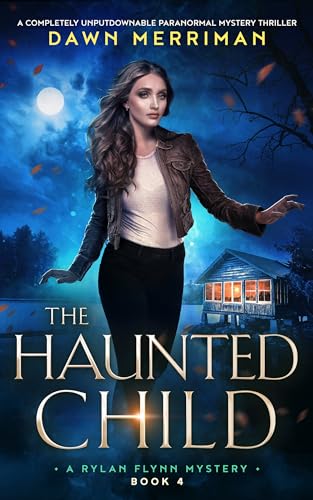

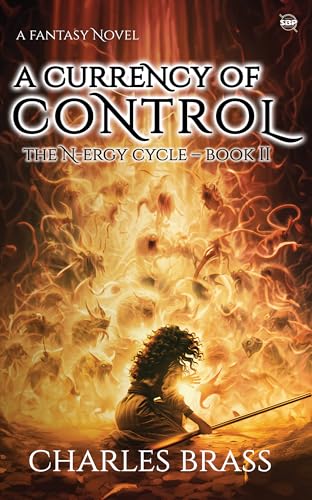

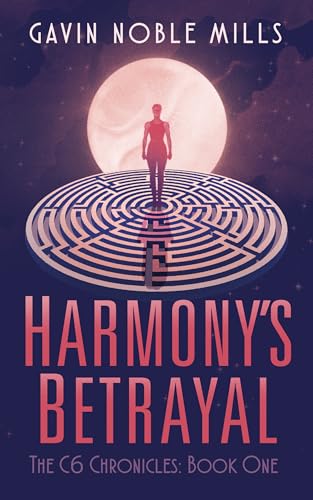
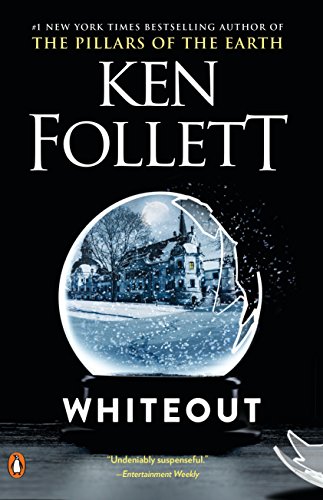


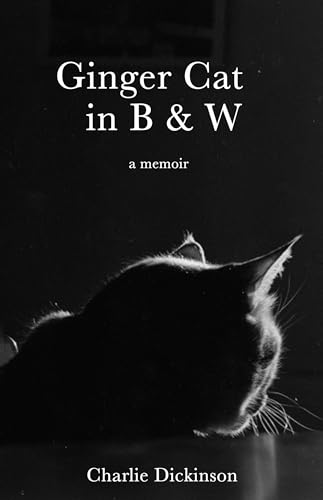

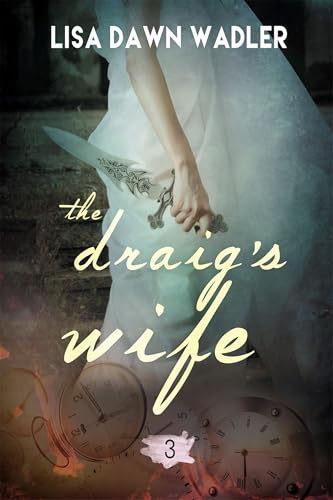
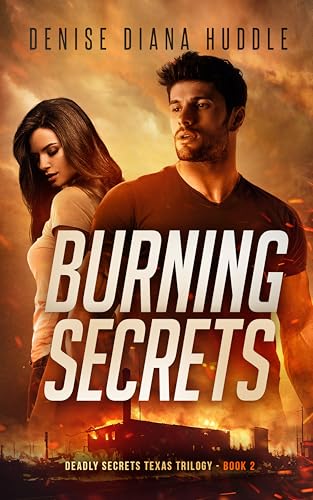

![Dancing Backward in Paradise: Southern Fiction for Women by [Cook, Vera Jane]](https://images-na.ssl-images-amazon.com/images/I/51IopuFlkzL._SY346_.jpg)



